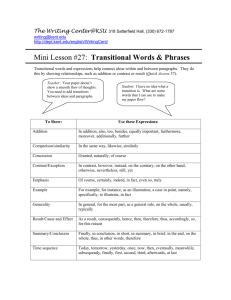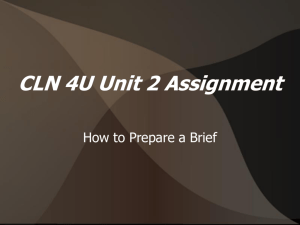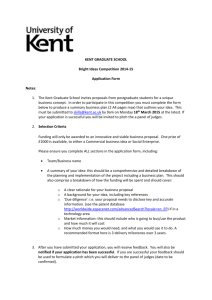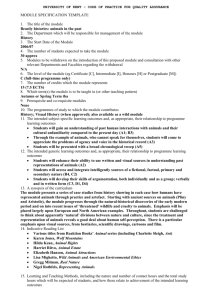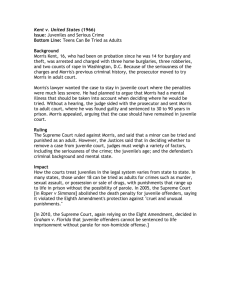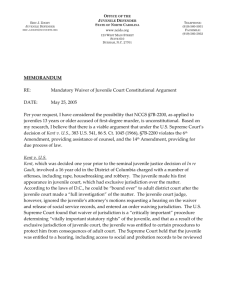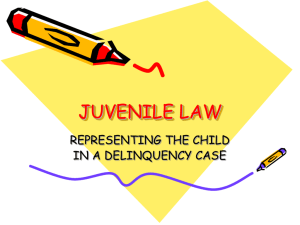Kent V. The United States 1966
advertisement
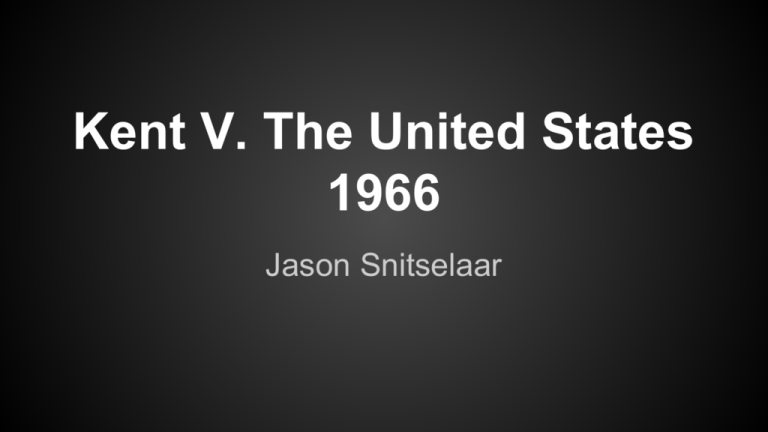
Kent V. The United States 1966 Jason Snitselaar Background Morris A. Kent a 16 year old boy was arrested for robbery and rape. The juvenile judge waived jurisdiction and was having Kent be tried as an adult. Kents lawyer wanted to know the reasoning and asked for Kents social service file. He was turned down and the judge just said “There was a full investigation” but he would not release the details of it. Basic question before the court Does a juvenile judge have the right to waive jurisdiction on a case without a public hearing? Supreme court's Decision 5-4 in favor of Kent Justice Abe Fortas wrote for the majority. The supreme court determined there was not a sufficient investigation prior to the waiver Kent did not receive a hearing, access to counsel or access to his records. Justice Warren, Douglas, Clark, and Brennan voted with Fortas Supreme court's decision continued Justice Potter Stewart wrote the dissent. he stated he would vacate the judgment and remand the case for reconsideration in light of two recent decisions by the court of appeals. Justice Black, Harlan, and White joined in the dissent. Societal impact In juvenile cases such as Kents it would now be required to have a full hearing before jurisdiction can be waived. Making it so that the judge can’t just pass a case to another court because he thinks the other court can handle it better. Sources http://www.oyez.org/cases/19601969/1965/1965_104 https://www.law.cornell. edu/supremecourt/text/383/541
